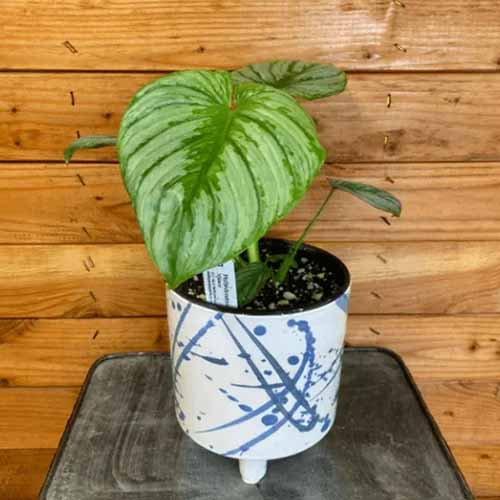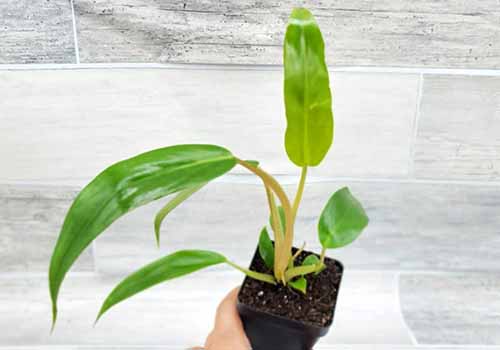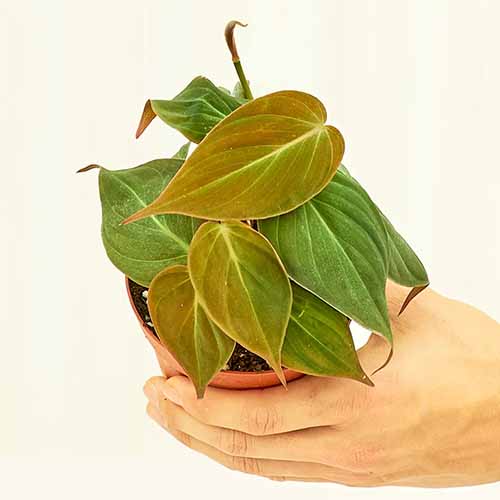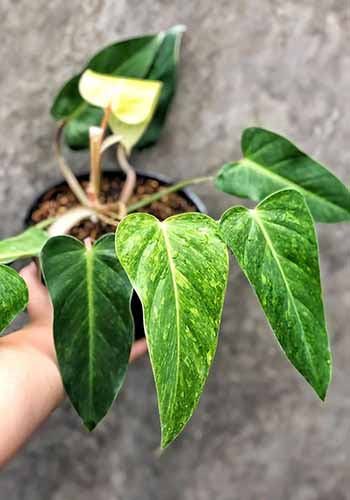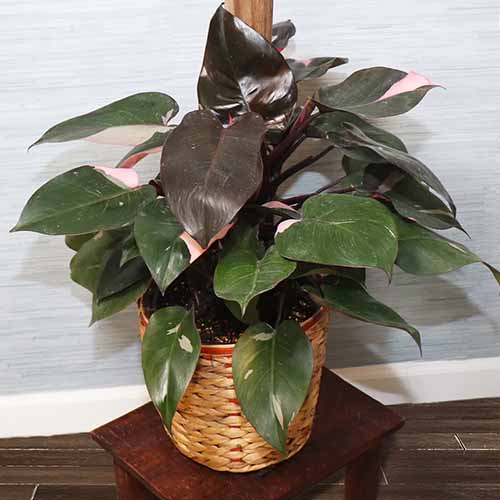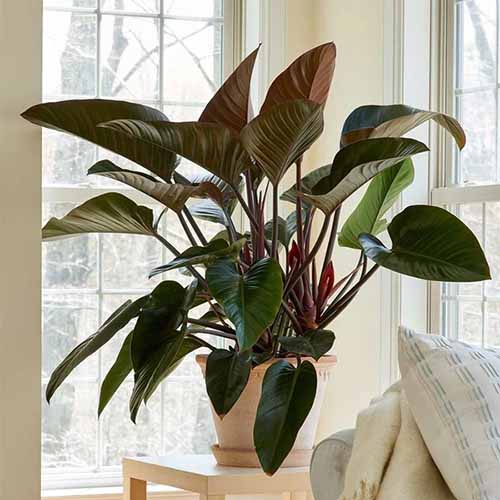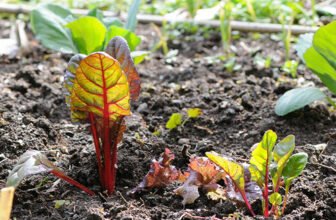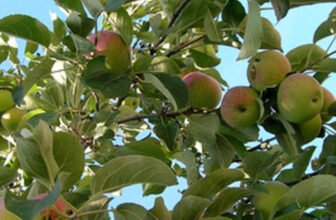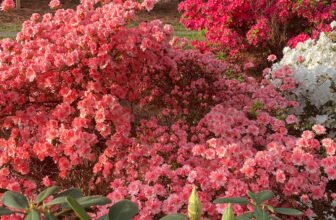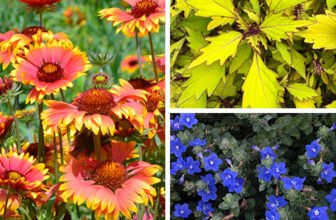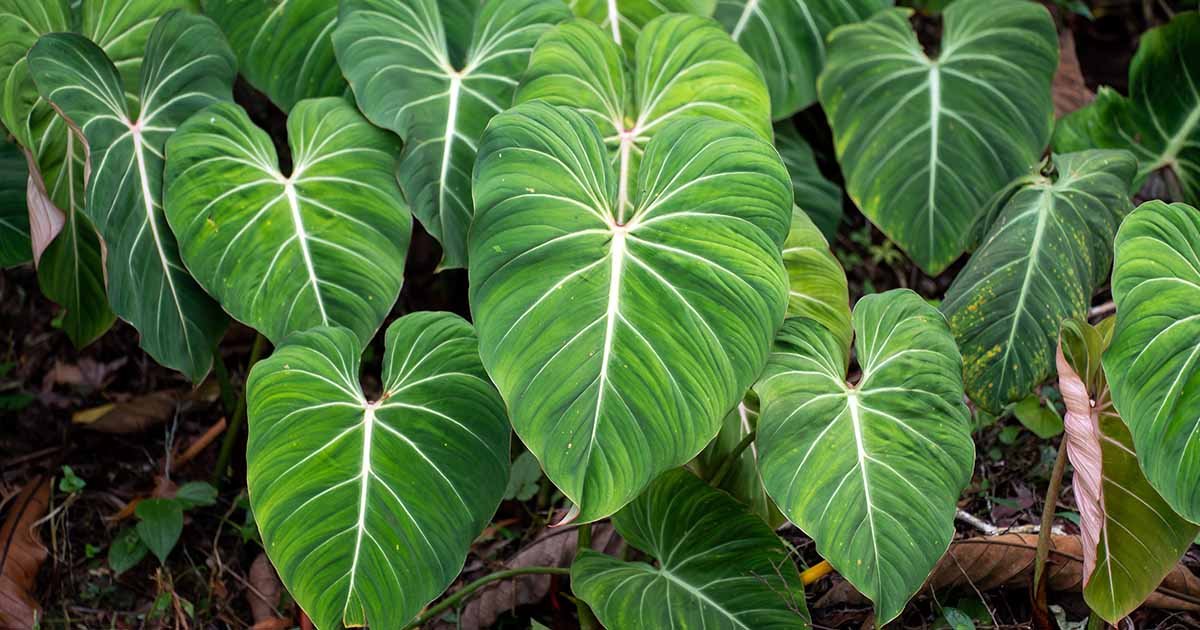
[ad_1]
If you do, it can grow up to three feet tall indoors and it is a self-heading type.
You can find this striking option in four-inch pots available from Californian Tropicals via Amazon.
20. Lemon Lime
A cultivar of P. cordatum, this beautiful plant is like a highlighter for your home.
The young leaves have a hint of blush as they emerge, but they mature into bright yellow or chartreuse, each with a perfect heart shape.
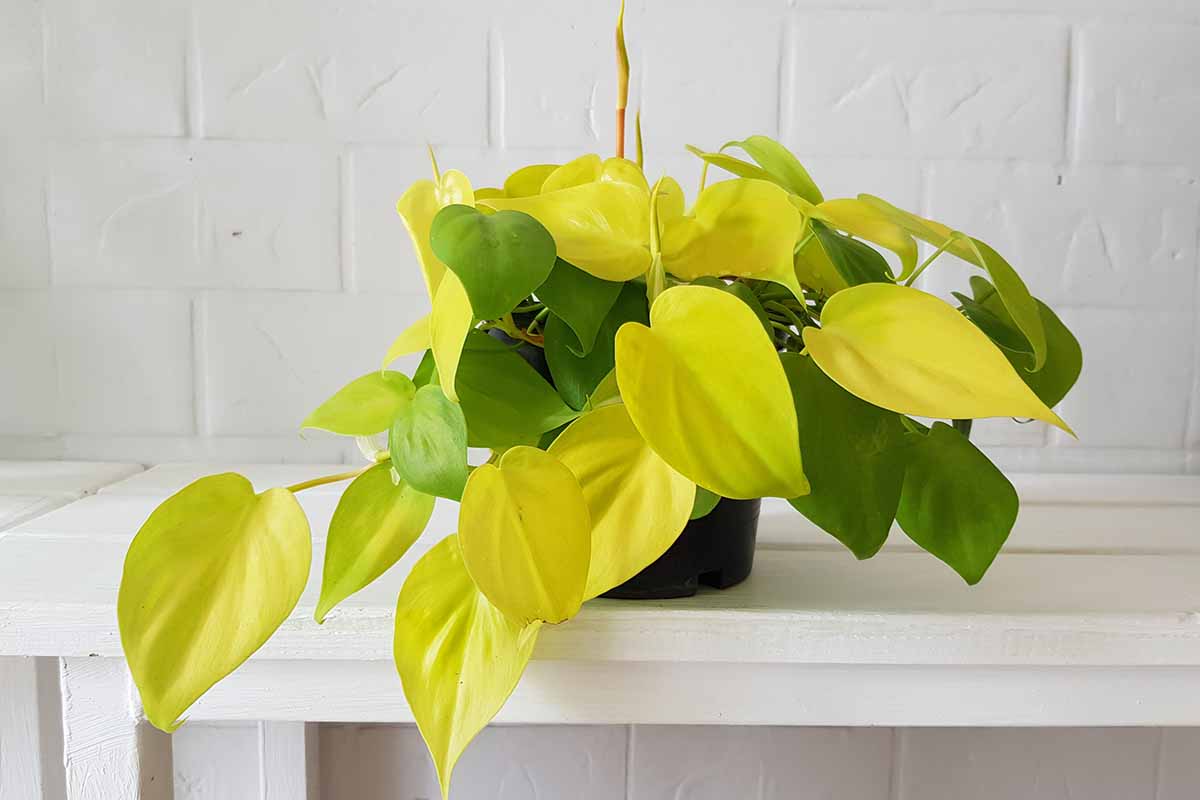

This isn’t a variegated cultivar, though there are variegated heart-leaf cultivars out there.
The leaves are solid on vines that can grow up to six feet long, but they change as they age.
Since the various leaves on a single plant are all of different ages, the effect is that of multiple colors on one plant.
Highlight your space and grab a young plant in a four-inch container from California Tropicals via Amazon.
21. Luxurians
P. luxurians is a show-stopper with deep green leaves highlighted by pale green veins with fuzzy margins that look like they’ve been painted on like a watercolor.
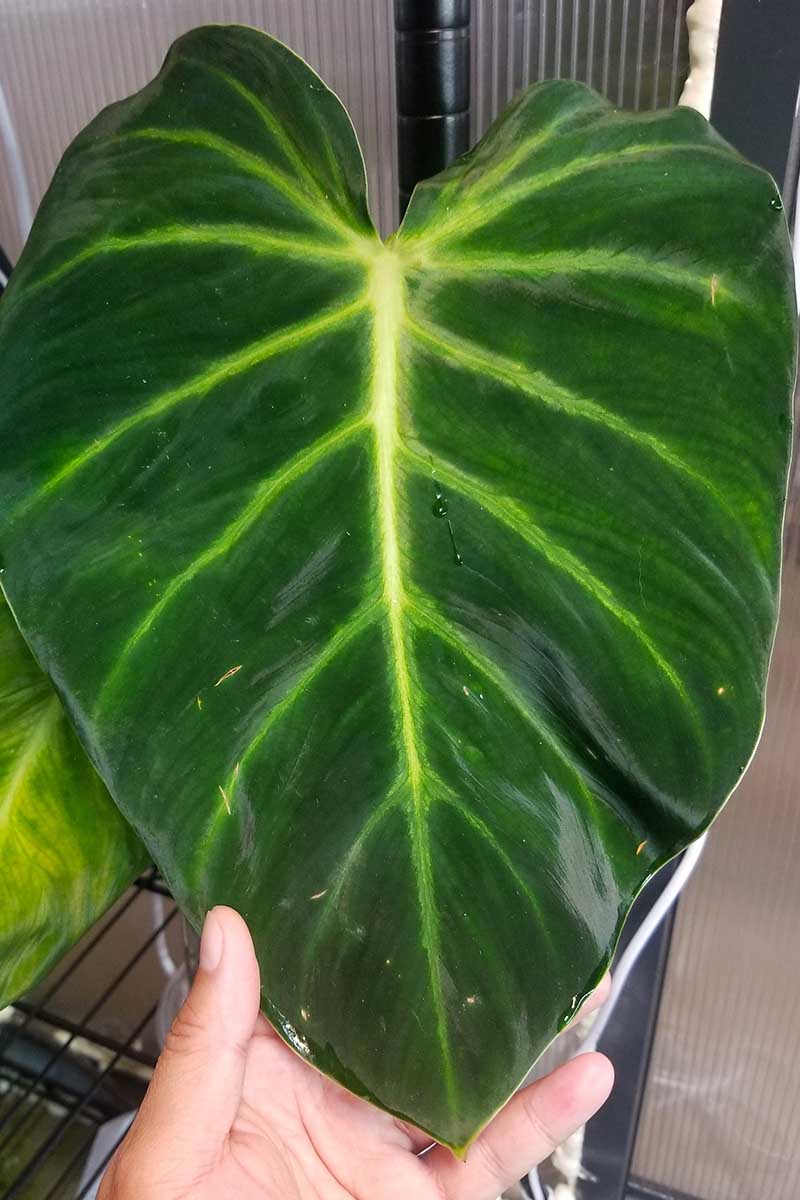

The foliage looks similar to that of P. gloriosum except the leaves are glossy instead of velvety.
The heart-shaped leaves are large, up to nine inches long, on a self-heading plant that reaches two feet tall.
Hop on over to Amazon if you want to bring home a live plant that will make a dramatic statement.
22. Mamei
With huge, heart-shaped green foliage with silver splotches, and deeply folded, pinstripe-like veins, P. mamei is a unique specimen.
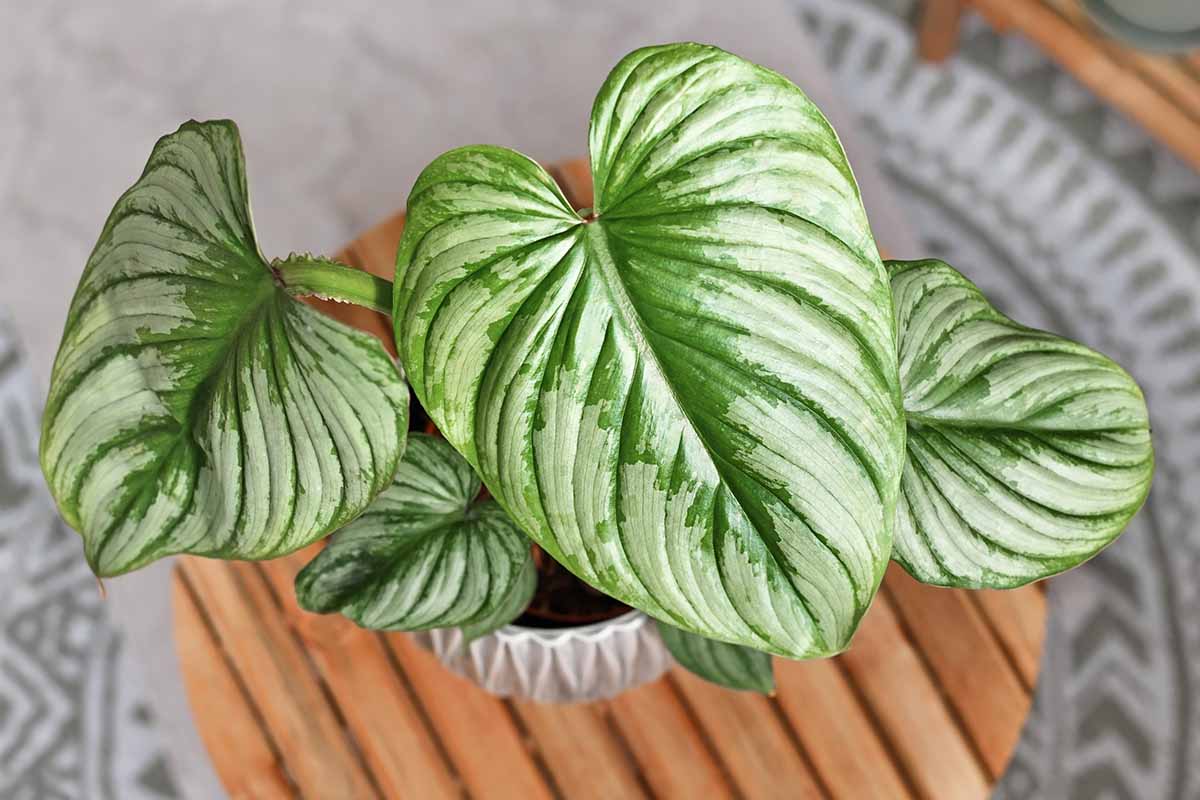

This self-heading type likes it hot, which is unsurprising given that it hails from the hot rainforests of Peru and Ecuador. Perfect for a warm area of your home, though it adapts to cooler temperatures.
If you’ve got the philo bug, this is a must-have addition.
Even if you don’t have the bug, it’s a dramatic houseplant option, whether it’s your sole addition or one of many, especially when it reaches its full height of around 40 inches.
Visit Walmart to purchase a live plant in a six-inch pot.
23. McColley’s Finale
With long lanceolate leaves on a self-heading plant, this beauty calls attention to itself with the young chestnut-red leaves that gradually mature to medium green with chestnut-red accents.
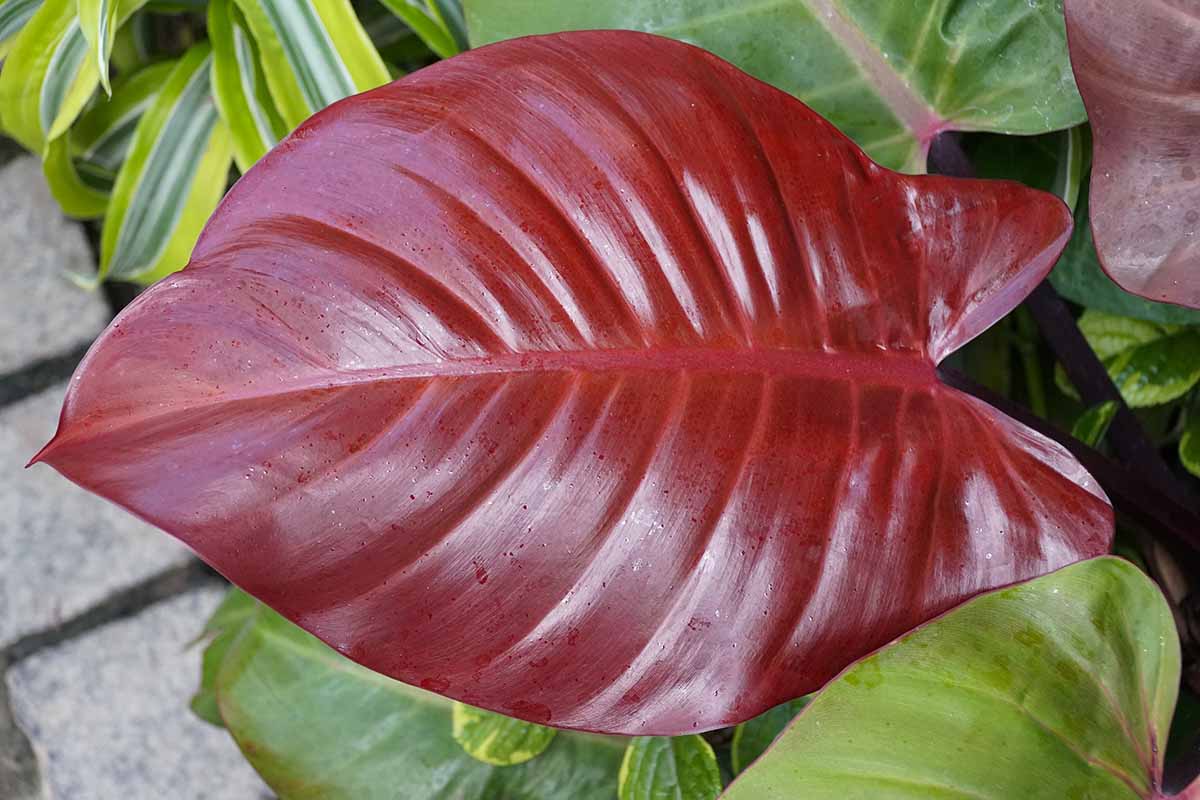

Bred by Bob McColley, owner of Bamboo Nurseries in Orlando, Florida, ‘McColley’s Finale’ was registered by his wife Cora in 1999 after he passed.
It’s unclear what species McColley used to breed the plant, but after his death his wife came across it and instantly recognized that this was something special with its unique coloration.
Unlike some philodendrons, which lose their color in the wrong light, ‘McColley’s Finale’ holds its color even in too little or too much light – within reason, of course. At three feet tall indoors, it’s the perfect height to work as an accent.
Punctuate any space with a burst of enduring color by snagging ‘McColley’s Finale’ in a four-inch pot at Amazon.
24. McDowell
What happens when you cross P. pastazanum and P. gloriosum? The magnificent ‘McDowell’ (aka ‘Dean McDowell’).
It combines the massive heart-shaped and glossy-textured foliage of P. pastazanum with the prominent white veins and heavy wrinkling of P. gloriosum.
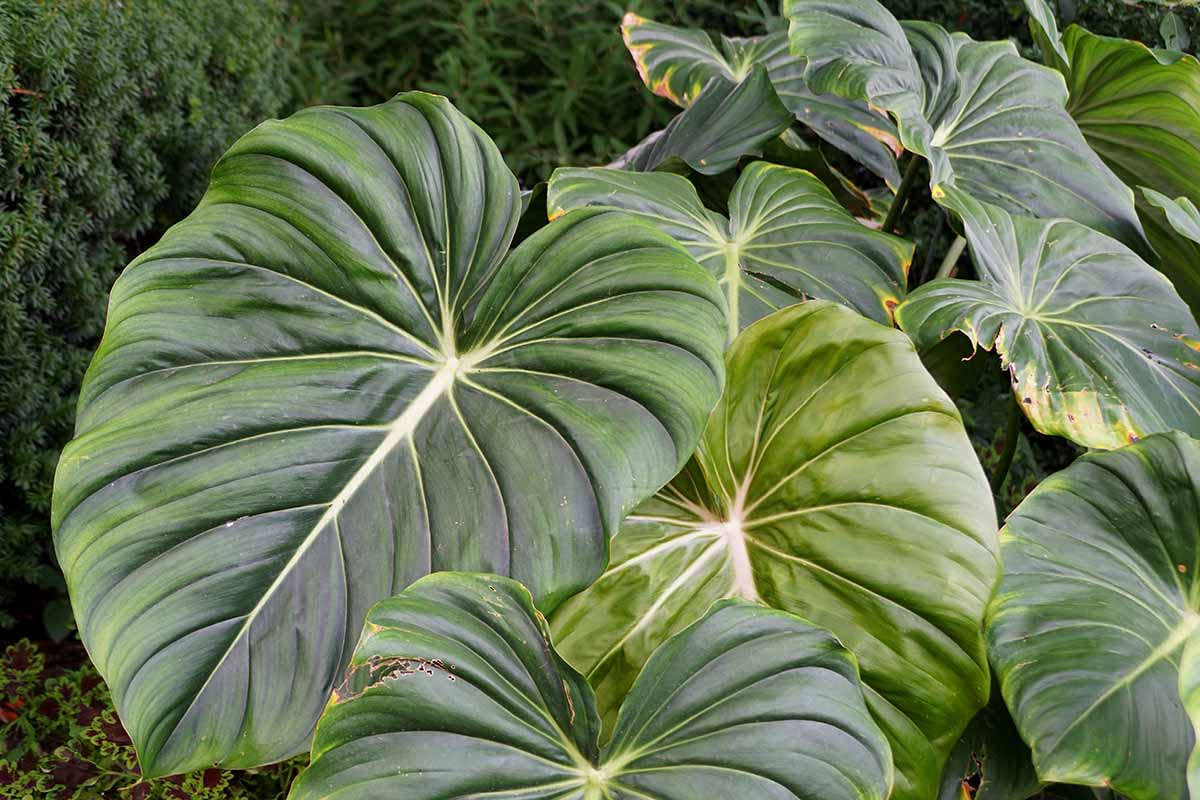

The self-heading plant can grow up to ten feet tall with leaves as long as three feet.
It was bred in 1988 by respected aroid breeder John Banta for his friend Dean McDowell, who passed away after a long battle with AIDS.
25. Mexicanum
With massive, glossy, tri-lobed leaves, P. mexicanum would be a dreamy philodendron even if it didn’t have bright green stems, but it does.
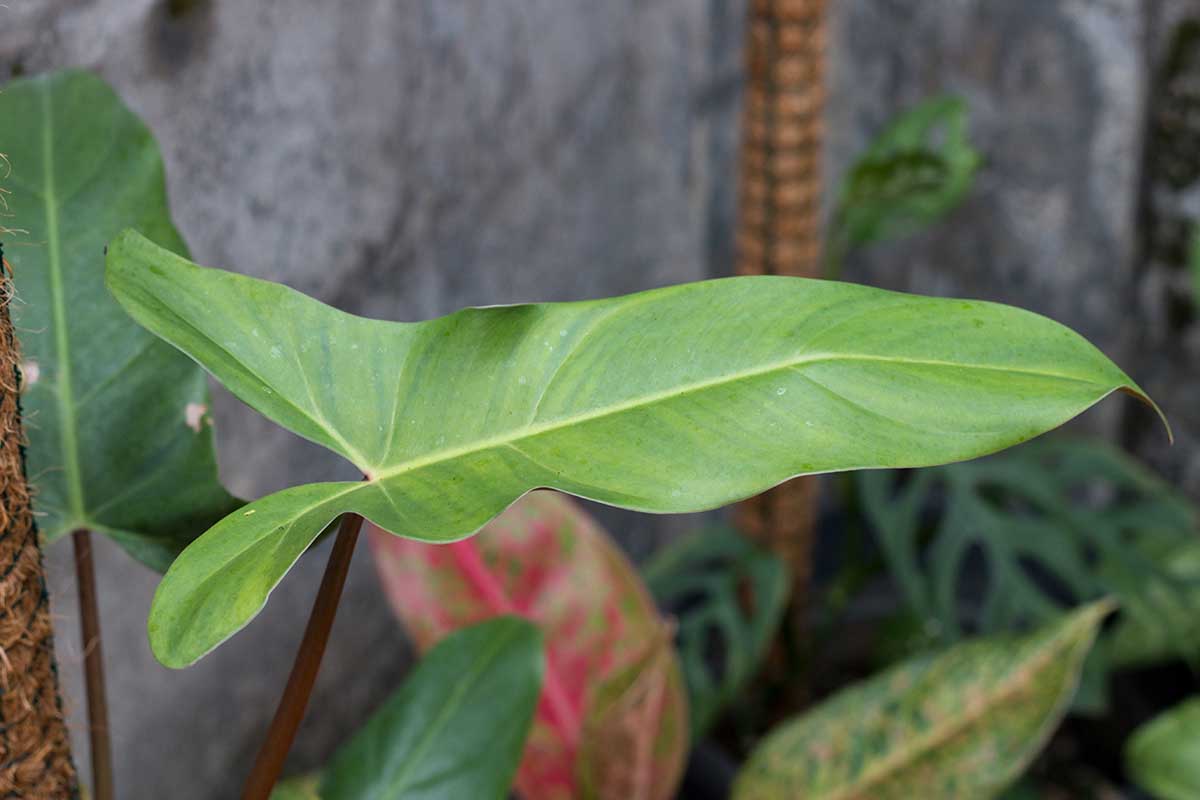

The young leaves emerge light green, but they gradually transition to dark green with maroon undersides.
Hailing from Mexico, P. mexicanum grows in drier climates than many other species, so let the medium just about dry out all the way before watering.
Invest in a heavy moss pole, because this climber will grow as tall as you let it, up to 20 feet, even indoors.
You can find starter plants in three-inch pots available via Walmart.
26. Micans
Philodendron hederaceum var. hederaceum is one of my favorite philodendrons.
It couldn’t be easier to care for, and it rewards your minimal efforts with heaps and heaps of vines covered in heart-shaped leaves that shimmer in the light.
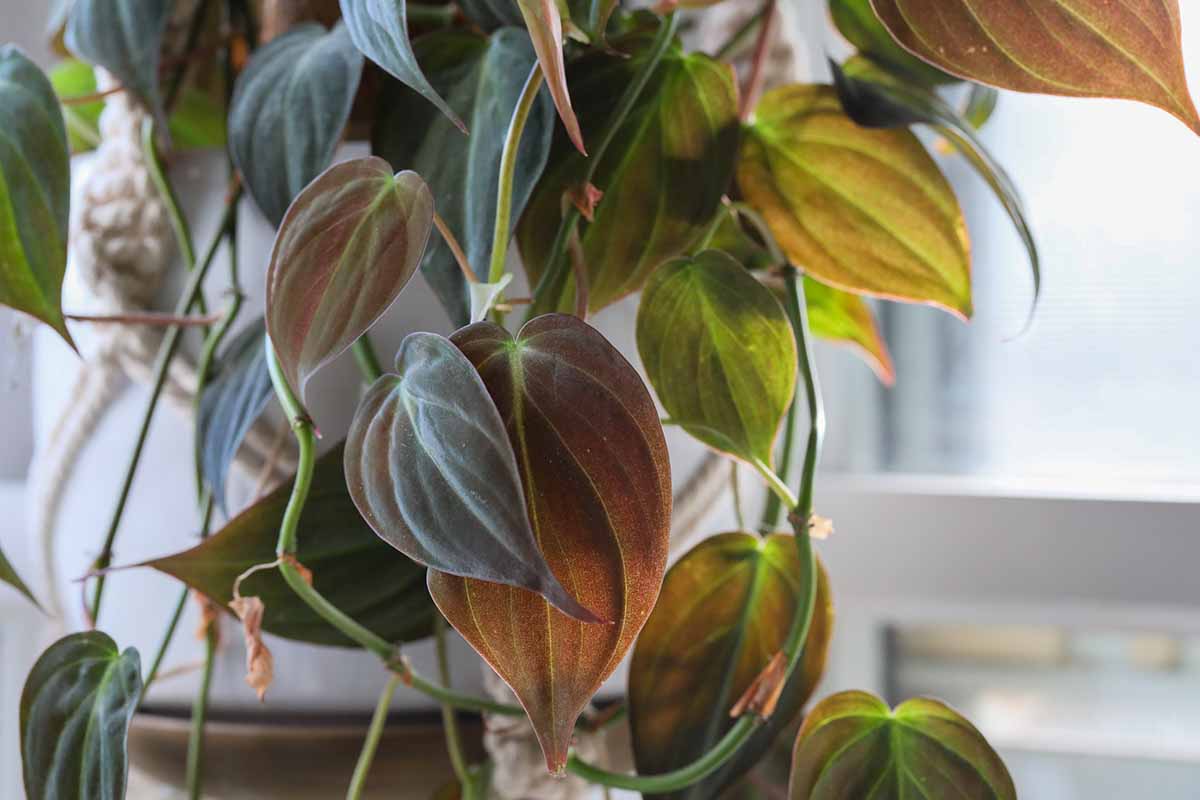

The foliage has a velvety texture that appears dark green, copper, or purple, depending on the angle and the way the light falls. The undersides have a blush hue, as do the young leaves.
This Central American and Caribbean native is popular in the houseplant trade, no doubt in part because of its fuss-free nature.
It’s also exceptionally easy to propagate, so you can have one in every room if you wish. Left to their own devices, they can grow up to 20 feet outdoors but stay closer to 10 feet indoors.
You can find velvet leaf philodendron, as it’s also known, in four-inch pots available via Walmart.
And check out our guide to growing philodendron Micans here.
27. Moonlight
This self-heading hybrid looks like someone colored in the glossy ovate leaves with a yellow and green highlighter.
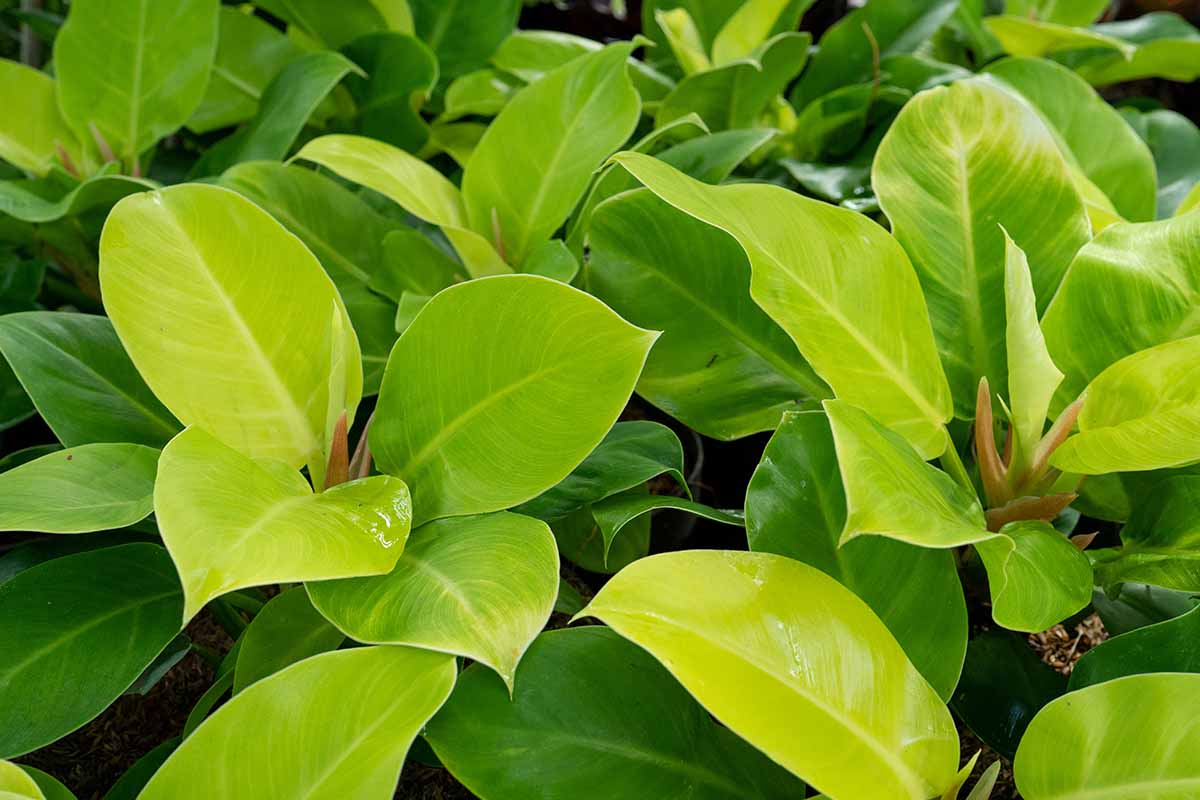

For the best color, provide the plant with direct light in the morning. The veins are a slightly lighter color than the leaves, and the stems have a faint blush hue when they’re young.
This hybrid will grow up to five feet tall inside. Sound like the thing to brighten up your space? Snag one, three or five plants in four-inch pots from Wekiva Foliage via Amazon.
28. Oak Leaf
I guess the leaves of oak leaf philodendron (P. pedatum) look a bit like oak leaves if you squint. But they’re much more interesting than that.
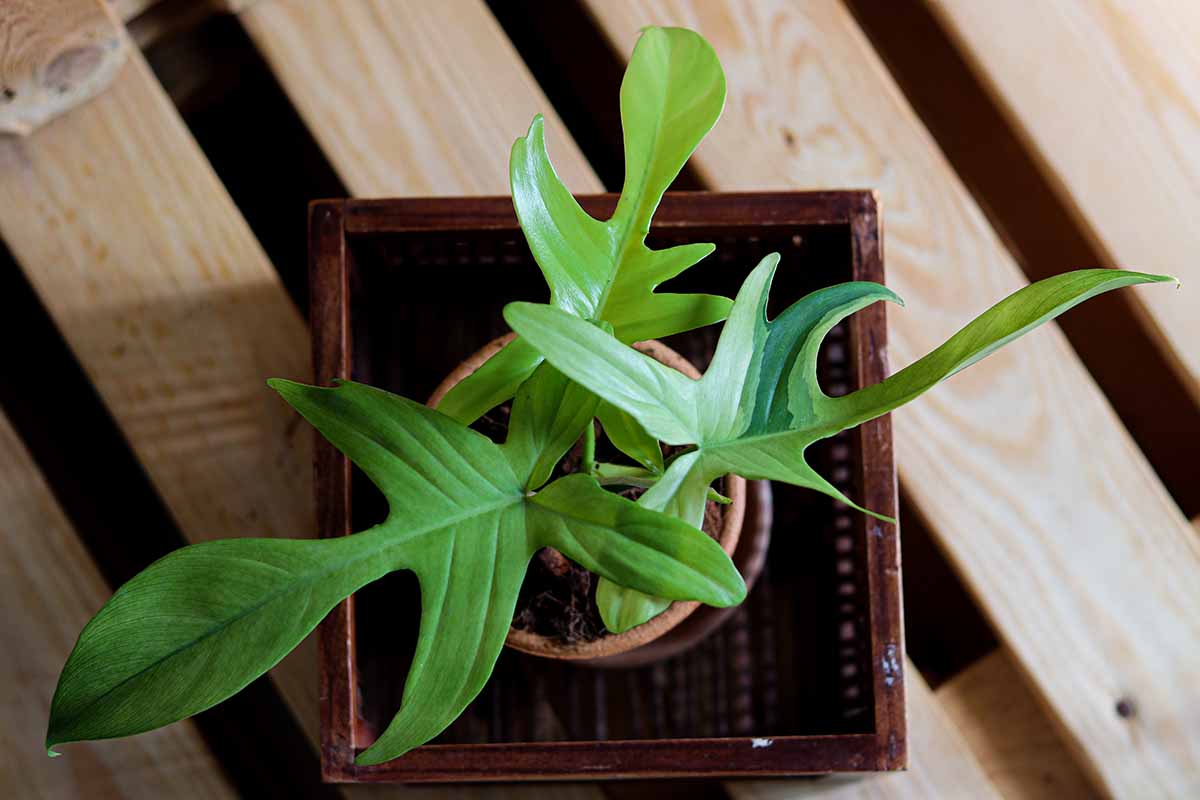

This South American native has deeply lobed leaves with five “fingers” when the leaves are young. The longest central finger is rounded and the other four are shorter and slightly pointed.
As the leaves age, they become more deeply divided and the lobes more pointed and elongated.
This self-heading type might remain juvenile in your home and never grow taller than about three feet tall, but with enough light and room, it can grow 10 feet or more.
Grab one in a four-inch pot from California Tropicals via Amazon.
29. Painted Lady
With yellow and green variegated leaves that look like they were carefully painted with splashes of watercolor, this hybrid was cultivated by the famous breeder Robert McColley using the P. erubescens cultivars ‘Burgundy’ and ‘Emerald Queen’ as parents.
You can see its lineage in the shape of its leaves and the burgundy stems.
The leaves emerge solid green, but don’t worry; they’ll gradually take on the elegant variegation.
Make sure it receives some direct light in the morning or the variegation will be less distinct.
Walmart carries ‘Painted Lady’ in four-inch containers.
Grab one of these self-heading plants and get ready to answer everyone who comes into your home and demands to know what that beautiful houseplant is.
30. Paraiso Verde
Whether you know this lady as green paradise, green princess, or ‘Paraiso Verde,’ it has deeply-lobed cordate leaves flecked in medium and dark green on a lime-green base.
Let this self-heading type climb up to 10 feet tall on a moss pole for an even more outsized display.
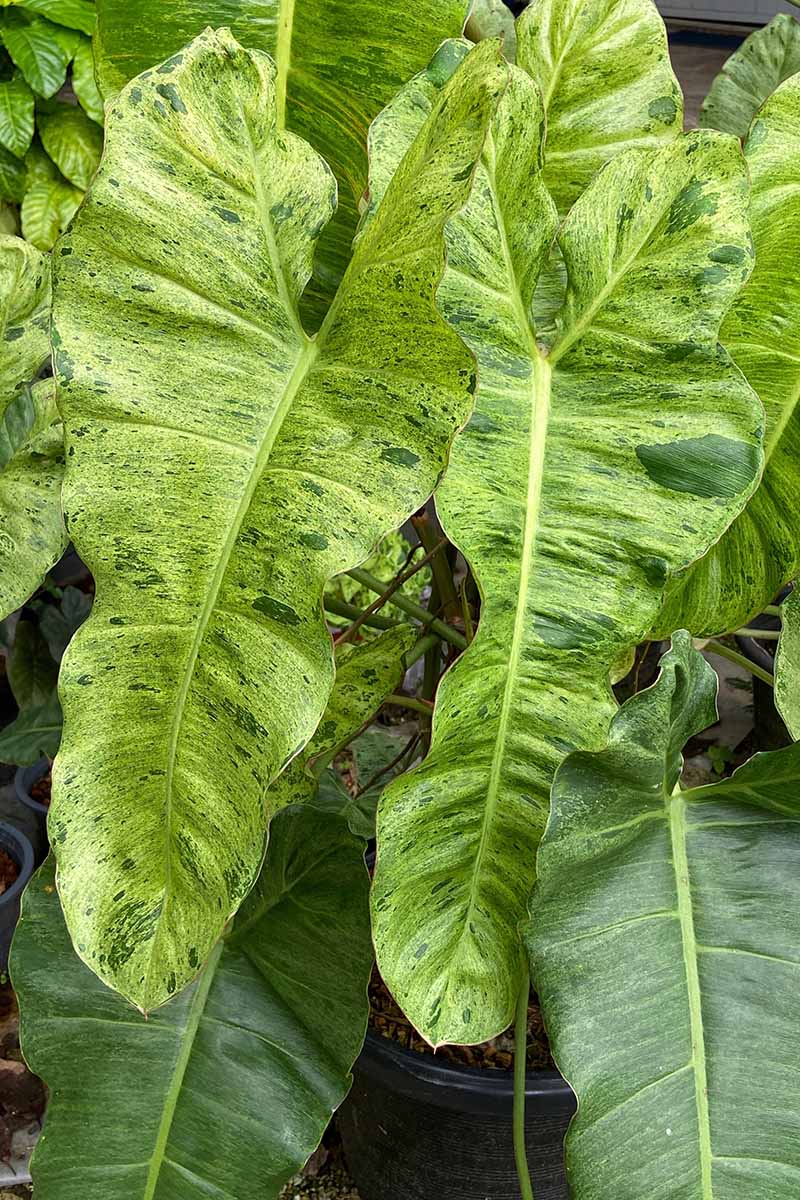

Don’t panic if some of the leaves start out solid green. The variegation is highly variable and it needs appropriate heat, moisture, and light exposure to look its best.
Keep the soil moist, the temperature above 65°F, and provide morning light, and you’ll be thrilled with the display.
This plant is a natural hybrid that was discovered in the forests of French Guiana in 2016 by nursery owner Natalino Correa of Belém, Brazil.
You can find four-inch starter plants available from BubbleBlooms via Amazon.
31. Pink Princess
‘Pink Princess’ is an extremely popular if pricey P. erubescens cultivar. If you ask philodendron lovers for a list of top ten of their favorites, this is likely one of them.
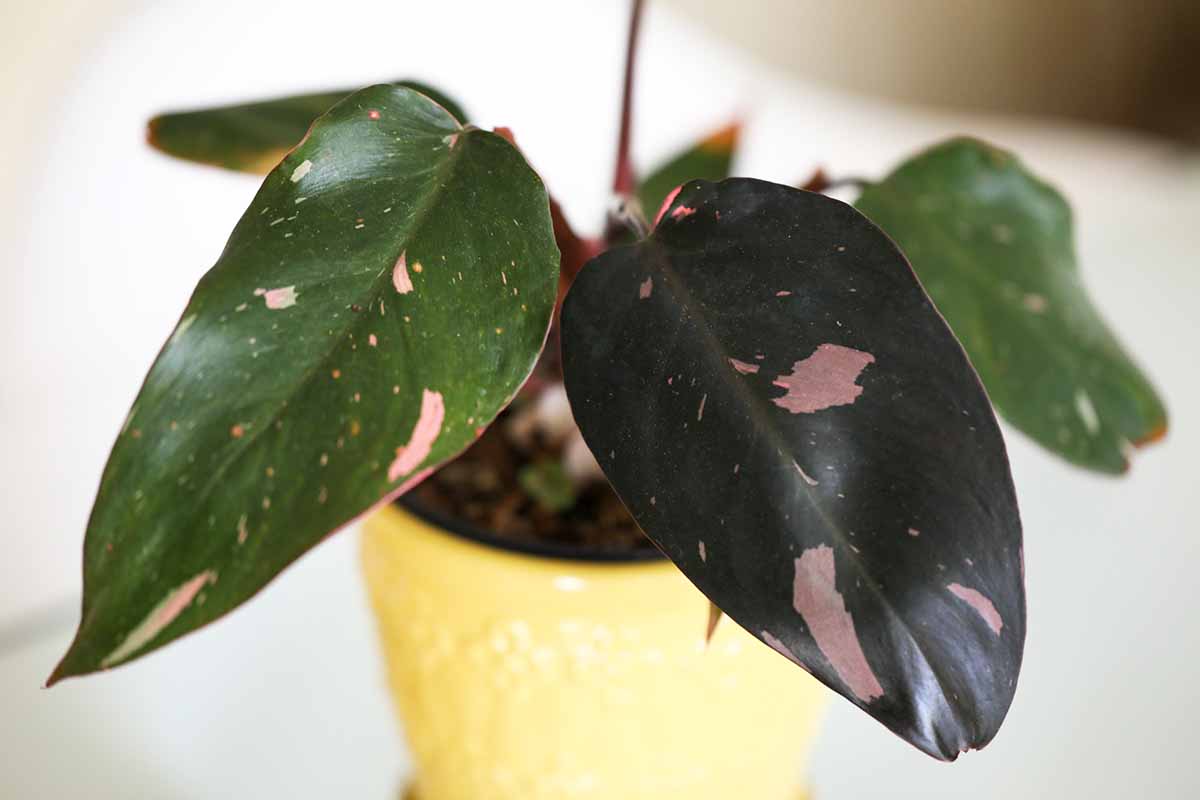

The leaves are heart-shaped with deep green, red, and true pink splotches with a stable variegation that is so distinct it looks positively fake.
The glossy leaves on this self-heading type can stretch up to five inches long on a plant that can be four feet tall.
Head to Fast Growing Trees to bring a plant in a gallon-sized container home for yourself or to make the philodendron lover in your life extremely happy.
32. Plowman
Plowman’s philodendron (P. plowmanii) is all about size and texture, rather than color – it doesn’t need to show off with bright hues to make a massive statement.
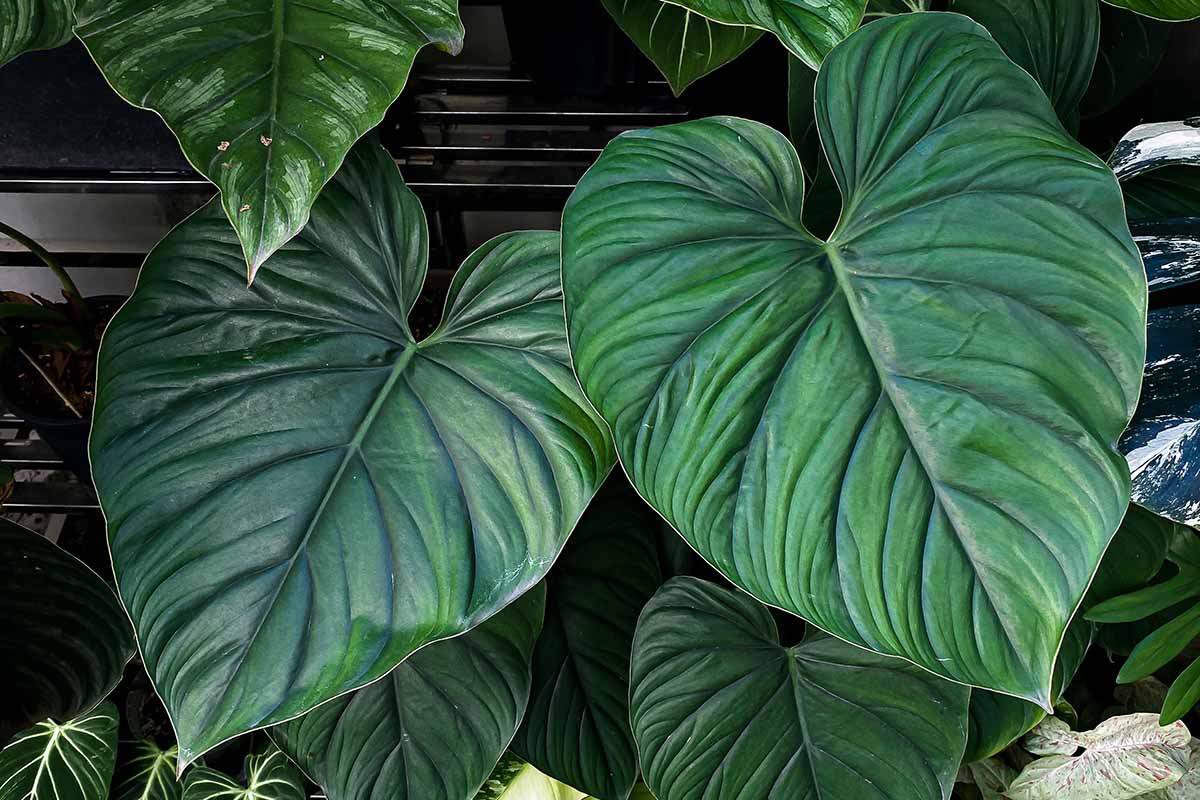

The huge heart-shaped leaves are dark green and look like someone quilted ripples and wrinkles into the leaf.
It’s often mistaken for ‘McDowell,’ but the stems are different. Plowman’s has a flattened stem with tooth-like projections.
Train it up a moss pole for a dramatic houseplant. When mature, this self-heading plant can reach up to eight feet tall with foot-long leaves.
You can snag an adorable little starter plant at Amazon. Don’t worry, they grow pretty fast, so it won’t be tiny for long.
33. Prince of Orange
There are a lot of P. erubescens cultivars in hues of red and pink, but ‘Prince of Orange’ bucks the trend and thrills with bright orange leaves.
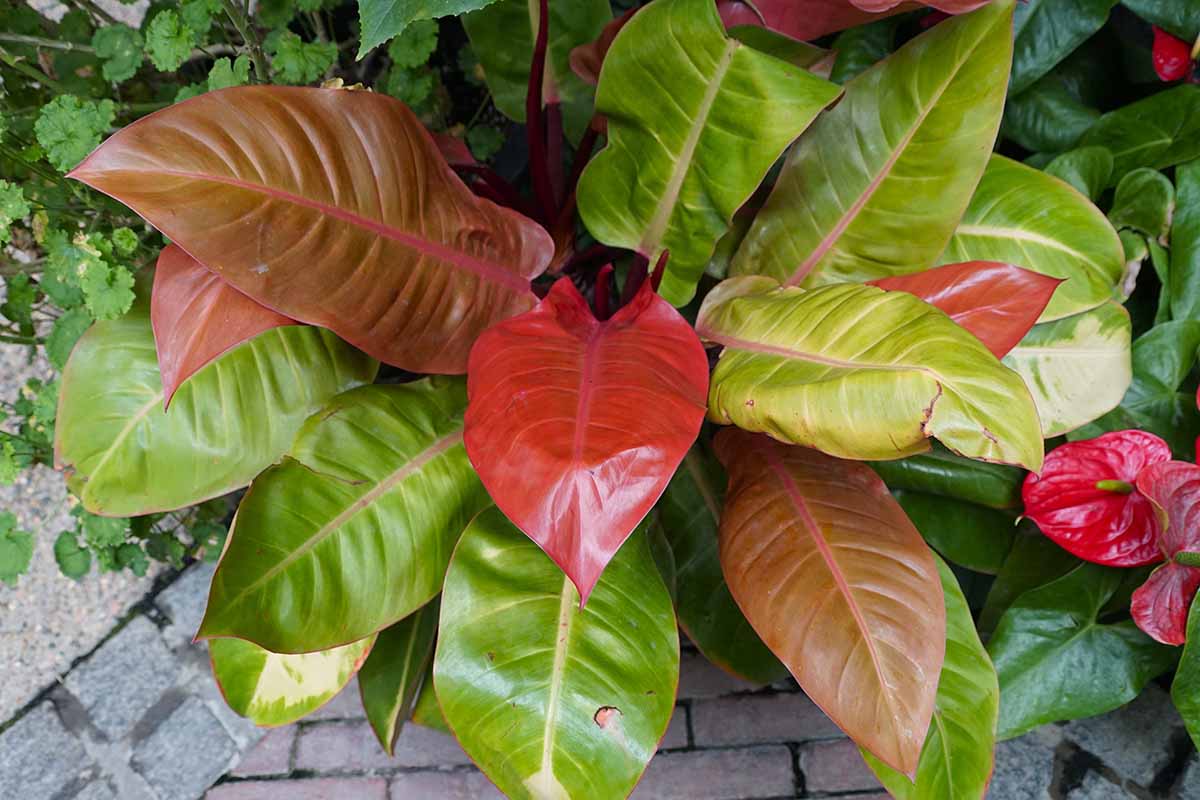

Depending on the light conditions, the color might trend more red or more yellow, and the leaves mature to green as they age.
That means on one three-foot-tall, self-heading plant, you will have a range of colors like a sunset wrapped up in a plant.
You can pick up a starter plant from the Hirt’s Garden Store via Amazon.
34. Ring of Fire
‘Ring of Fire’ has to be seen to be believed.
The lanceolate leaves are variegated hues of dark green and cream or yellow, with large, jagged sections of red and orange reminiscent of flickering flames.
The striking appearance is only enhanced by the saw-like rippling on the margins of the foliage.
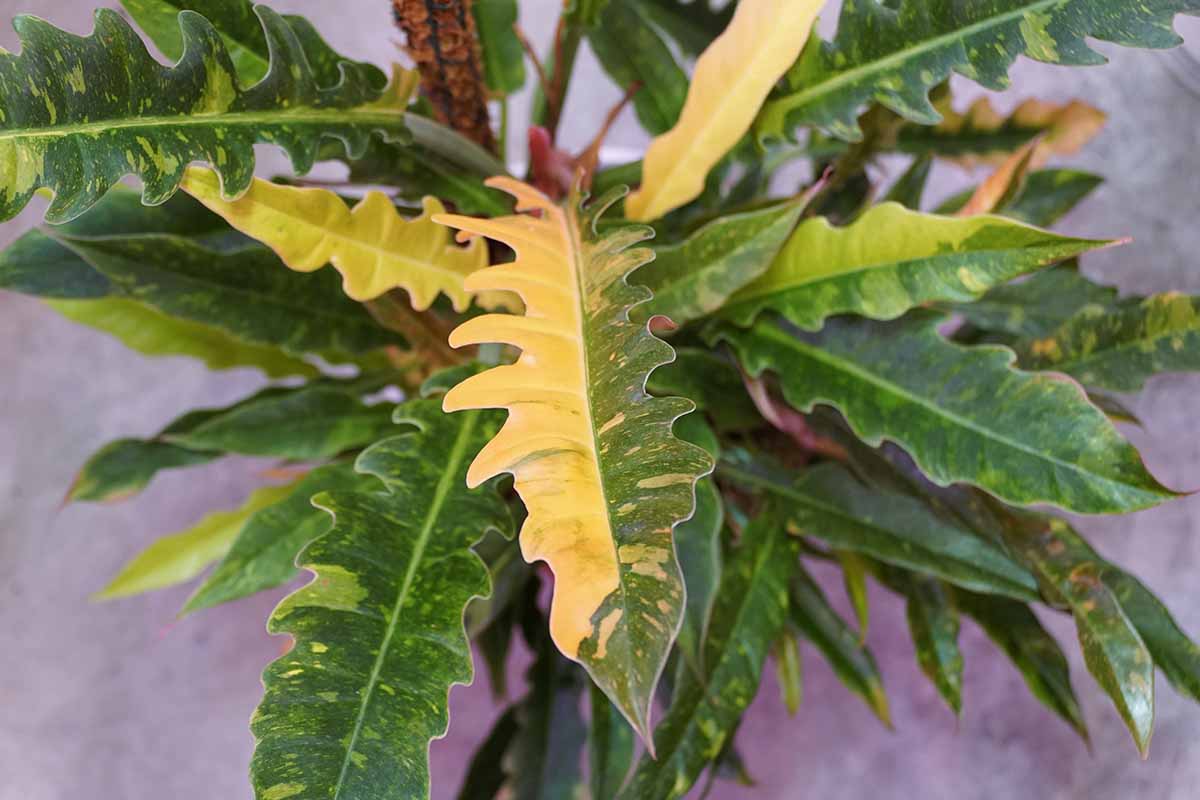

This jagged edge forms on mature leaves, but young leaves have smooth margins, all on an eight-foot-tall plant.
We aren’t entirely sure how this hybrid was bred and by whom. Rumor has it that famous aroid breeder Keith Henderson used P. tortum and P. wendlandii to produce what was then called “Henderson’s Pride.”
If you’d like to enjoy this exceptional self-heading hybrid, you can find plants in four-inch pots available at Home Depot.
Because this plant is slow-growing, it might take a few years before you’ll be enjoying its full glory, but the wait is worth it.
35. Rojo Congo
‘Rojo Congo’ looks similar to its close relative ‘Congo Green,’ but it’s a bit smaller overall.
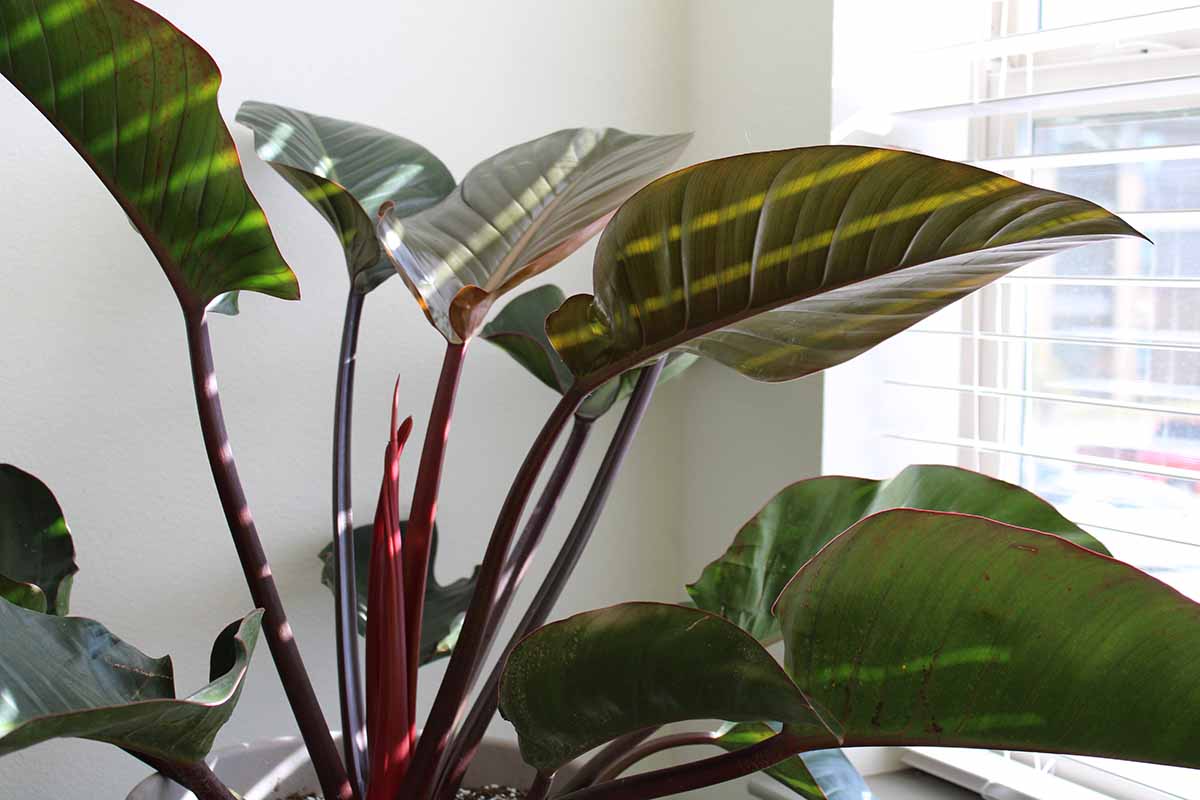

Sometimes called ‘Congo Rojo,’ it is a hybrid cross of P. tatei subsp. melanochlorum and P. x ‘Imperial Red’ that was bred in Florida in 1995 by Marian Wincenty Osiecki at Oglesby Plants International, Inc.
The petioles are burgundy or purple, and the leathery leaves on this self-heading type are thick and glossy.
You can find plants available from Planting Tree.
36. Silver Sword
P. hastatum is commonly known as silver sword philodendron, and it’s easy to see why.
The lanceolate or tri-lobed leaves, which are more arrow-shaped when they’re young, have a distinct shimmery silver hue.
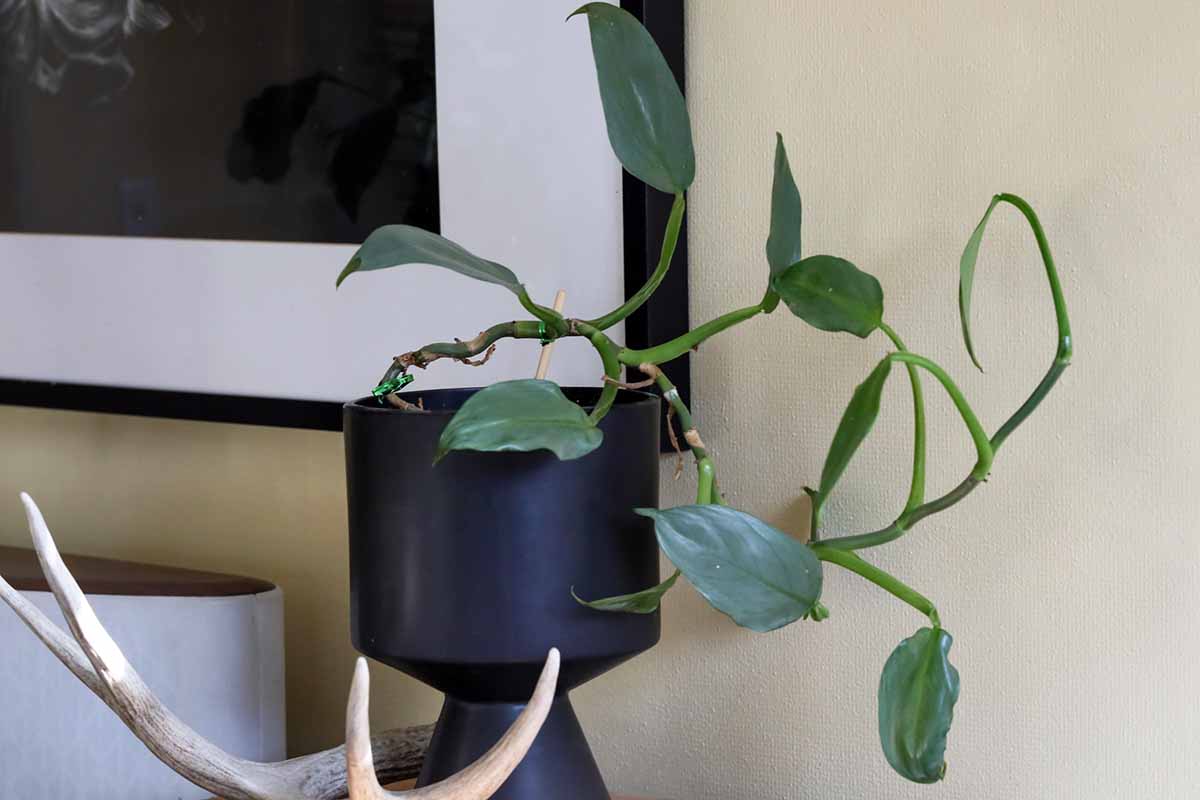

The mature leaves resemble a sword complete with a handle that, combined with the color, truly lives up to the name.
Train this climber up a moss pole or let it crawl along a horizontal shelf.
Make sure you have enough room because it can grow 15 feet long in the home and 30 feet long outside. Either way, it’s a pretty cool plant.
You can find P. hastatum in seven-inch seagrass containers available at Home Depot.
37. Snowdrift
‘Snowdrift’ has a mysterious past. Philodendron enthusiasts strongly suspect that this hybrid was bred using P. pinnatifidum and P. giganteum as a white variegated version of ‘Jungle Fever,’ but no one knows for sure.
[ad_2]


